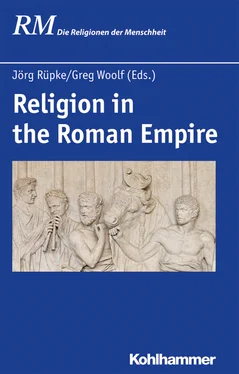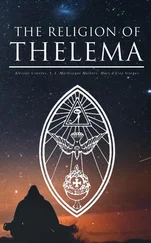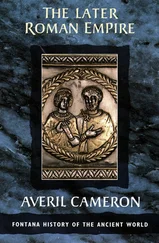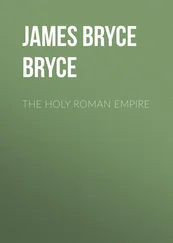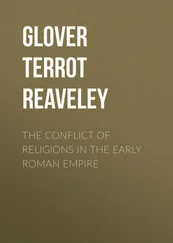Woolf, Greg 2012. Rome: An empire’s Story . Oxford: Oxford University Press.
— 2017. »Archaeological Narratives of the Collapse of Complex Societies.« In Decline and Decline-narratives in the Greek and Roman World: Proceedings of a conference held in Oxford in March 2017 , ed. T. Minamikawa. Kyoto: Kyoto University. 113–122.
— 2020. The Life and Death of Ancient Cities: A Natural History. Oxford: Oxford University Press.
Empire as a field of religious action
Greg Woolf and Miguel John Versluys
1 A Religion of the Empire?
Official papyri from Egypt are often dated quite precisely, which is how we know that forty-six certificates ( libelli ), each testifying that its recipient had performed a sacrifice to the gods in the proper way, were all produced in the summer of AD 250. 1Women and men, all over Roman Egypt, were conforming to an edict issued by the Roman emperor Decius, a universal edict in fact that commanded all Roman citizens to sacrifice on behalf of the empire. That edict has been interpreted by modern scholars both as a deliberate exercise to root out atheists—as Christians were often described—and as a desperate attempt to win divine support in the depths of the military crisis of the third century. Either way it seems to express the sense of the Roman Empire as a single worshipping community, united by particular ritual practices and directed unambiguously by a single authority. Nothing could be further from the truth. 2
Deciusʼ edict was only possible because one generation before most inhabitants of the empire had been enfranchised through an earlier universal edict, the Constitutio Antoniniana issued by Caracalla in AD 212. Caracalla’s motives have been much discussed and the decision certainly had many unintended consequences, including major consequences for the use of the ius civile documented in the works of the jurist Ulpian. 3Before that point perhaps only a third of the empire’s inhabitants were Roman citizens. 4The remainder were either foreigners ( peregrini ) or had one or other of a range of statuses that can be thought of as part citizenships, among them Latins, Junian Latins, Alexandrines and the former slaves of Roman citizens.
Almost all inhabitants of the empire had at least one additional citizenship of a much more local and immediate kind, membership of one or more of the many communities of which the empire was made up, such as the Treveri, formerly a powerful Iron Age tribe living around the Mosel Valley in western Germany; or the Athenians once an imperial people themselves; the Corinthians, descendants of Roman colonists settled on the site of a Greek city sacked a century before by a Roman army, and so on. There were between two and three thousand such communities in the empire. Local citizenships were often proudly proclaimed on tombstones even by those whose families were also Romans. Local identity never lost its importance in antiquity. 5Indeed the local and the universal went hand in hand, and were rarely mutually exclusive or even opposed categories, as modern scholars sometimes seem to think when writing about ›Roman identity‹. 6
The collective rituals in which individuals participated were almost always conducted at the local scale, whether it was the worship of gods with strange indigenous names sometimes through ancient ritual forms; prayers and vows to Mars, Saturn, Apollo or Jupiter; the worship of Roman emperors, living and dead; and eventually rituals performed at the tombs of Christian martyrs. When dedicators in Greek speaking areas of the east set up inscriptions to patrioi theoi (the ancestral gods) they did not mean the gods of the Romans, but the gods of their own cities. There were even more localised forms of collective cult, in villages, in city quarters, and in households.
Many of the same people also took part in worshipping communities that were not defined by existing ties of kin, locality or citizenship. 7Little clusters of male worshippers came together in many of the western provinces to take part in the mysteries of the Persian god Mithras. 8And as individuals some men and women made their way to healing shrines like those of Asclepius at Epidauros and Pergamum; visited places like Bath and Mainz where they could enrol the gods in cursing their enemies; consulted oracles in Delphi, Dodona, Praeneste, Grand, Abonouteichos, the Siwa Oasis and countless other places; promised offerings if they returned safely from dangerous journeys as they did at shrines to Nehalennia at the Rhine mouth; traveled huge distances to undergo initiations like those performed at Eleusis; climbed to mountaintop sanctuaries like Mount Casius in Syria or the Puy de Dôme in the Auvergne, travelled to temples at sources of rivers like the Clitumnus or visited sacred lakes like lake Avernus; and everywhere they prayed for fertility and good health. 9Most of these religious traditions were not new, and some of these sanctuaries claimed to be very ancient indeed. Our question in this chapter is what difference did Empire make to the religious practices and experiences of individuals on all these different levels of participation?
Our answer is that Empire did operate as a distinct field of religious action, but not in a straightforward sense. Imperial authority constrained where it could not direct, and accidently facilitated developments no emperor could have dreamt of. Few of these transformations were planned and the consequences of empire building were mostly unintended. 10The limits of empire, vague as they sometimes seem, created a vessel within which religious change followed a distinctive course. That vessel was, however, a leaky one. The last part of this chapter will consider the space of empire as just one part of a much more extensive set of cultural spaces through which objects and images and ideas as well as people circulated quite freely, with consequences of their own for religious developments.
2 Emperors in the Religious life of the Roman World
Let us start, however, with what was clearly the most recognizable universal aspect of this religious field: the emperor. Deciusʼ edict was the first of a series of attempts by emperors to extend their fiat over ritual practice. During the decades that followed there would be imperially instigated persecutions of Christians and Manicheans, imperial constitutions prohibiting Jews from converting Christians, bans on public funding for sacrifices to the gods, and attempts to impose particular varieties of Christian dogma and discipline. In parallel to this process the emperors began to claim a special relationship to the divine and a divine mandate. This had been a strand in imperial ideology from the very start but became more explicit during the military crisis of the third century AD. Deciusʼ predecessor Philip celebrated Rome’s Thousand Year Birthday, and the rhetoric of the tetrarchs allocated the ruling emperors to Jovian and Herculean dynasties. Constantine’s decision to proclaim himself a follower of Christ was just the latest version of this. An unintended consequence was that from the early fourth century Christian bishops began to press emperors to assist them against those they regarded as pagans, schismatics or heretics. Some resisted but by the end of the fourth century a new explicitly Christian Roman Empire had emerged.
The increased involvement of imperial authorities in religious affairs was not unique to Rome. Around the same time Christians in the Persian Empire found their loyalty suspect, and Sasanian Emperors began to persecute Manichaeans and to develop a closer connection to the Zoroastrian priesthood. 11These changes in the religious conduct of emperors respond to the emergence of the precursors of modern religions, in the sense of organized and disciplined entities that demanded exclusive adherence and made claims to uniquely authoritative accounts of the cosmos. 12This includes the spread of monotheisms, the precursors of modern religions such as Zoroastrianism, Judaism, Christianity and Islam, and the appearance of priesthoods that asserted an authority independent of that of early propertied classes, political elites and monarchs.
Читать дальше
